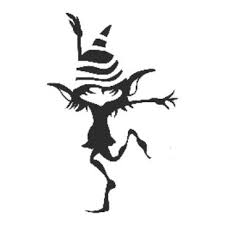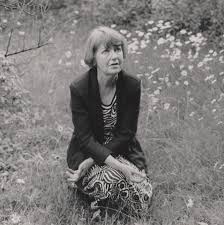The first two pieces in this module make it seem like it's possible just to sail through life in a serenely principled way, building systems which ensure an asymmetric defender's advantage; understanding deeply the relationship between penalties, freedom of expression, and equality of outcome; and inventing ever more imaginative and creative solutions which give creators direct, immediate access to that which they truly dream of creating as a means of political evolution.
However, we know by now that we cannot have serenity without its complement; it too must be balanced by some opposite force in order to fit sensibly into this multidimensional play of pattern we've been looking at for seven weeks. What could that opponent process be? Our submission is an old Spanish word: duende. Here are two enchanting voices to open the exploration:
How does this fit into Kernel?¶
This is about the value of struggle. About what it can mean to suffer blindness and see it as the ultimate gift. It will take us back into the thirst Paul Myburgh first mentioned, and explore the price which must be paid to realise a dream, a price which can only be paid in the coin of another realm. It is about the connection between principles and suffering and that old quote: the price of freedom is eternal vigilance. In its original form:
"The condition upon which God hath given liberty to man is eternal vigilance"
-- John Philpot Curran
For the purpose of this piece, every time you read the words "poem", "poet" or "poetry", substitute your own work and/or current identity, because poetry is not about a particular form or well-crafted content. It's not even a particular kind of practice. It is an intensity of awareness. As such, any and every act can rise to the poetic.
Powerless Knowing¶
There are a hundred technical pieces which explain the deeper workings of wallets, bridges, and blockchain-agnostic payment channels. All of these are valuable. None of them answer the question why? Why are we doing this? There are another hundred pieces on the shortcomings of the current financial system, or the advantages of ownerless, borderless networks and the magic of new technologies like zero-knowledge proofs, but still, they don't speak to the real kernel of the question. Why this?
Beyond intellectual understanding or technical mastery, what is at the core of our shared sentiment that there is something inherently good about working for a better web which none of us own and from which we all benefit? There is only one kind of language which is capable of examining and describing this sentiment: poetry.
A poem, a good poem, speaks to and from a place that belongs to us — that elusive pitch of being some might call the soul, the psyche, the sub- or unconscious. We believe it’s there because we feel it working, but we’re powerless to tell it when, or how, or even why to work.
The word "health" shares a common root with "whole": to be healthy is to be whole, to see the world as it is, rather than separated by our own conventional constructions. To see through the lens of the soul is to have a healthy view; one which always seeks to apprehend the totality within each part or passing moment without enclosing it. This in-sight celebrates both the high ideals toward which we strive and the simple fact that it is a deep struggle to be eternally vigilant.
The Way is bewildering in its simple demands. We often lose sight of where we thought we were going. The point is to try and move patiently and with generosity, by remembering that we are never not broken. Building Web 3 projects will have you constantly feeling this way.
The only question is whether that blindness and inability to know or control the final outcome of these interplanetary principled games leave you groping in anxiety, or celebrating that you can now see the haloes around streetlights: a simple fact which, through the embrace of darkness, gives you the strength to refuse to come back to a universe of objects that don’t know each other.
Prompt: With what other word does "health" share a common root?
Whole.
Inhabiting Honesty¶
I love this concept of duende because it supposes that our poems are not things we create in order that a reader might be pleased or impressed (or, if you will, delighted and instructed); we write poems in order to engage in the perilous yet necessary struggle to inhabit ourselves — our real selves, the ones we barely recognize, more completely.
What underpins the psychological attraction to public, auditable code, deployed on a shared world machine which produces deterministic outcomes? It is honest. The struggle to inhabit ourselves more completely can only occur through similarly radical honesty. Poetry is how we cultivate honesty on a personal level (where ambiguity is required), while code is how we cultivate it within society (where predictability is required).
Let's be honest then; what we're working for is a miracle. Many of us harbour the desire that a critical mass of people will wake up and realise that the ways we transact with one another and the ways that we organise our relationships and work surrender both power and value to a system consciously designed to extract the maximum profit it can. Moreover, that this realisation will also entail the creative and insightful use of the tools we already have, in the service of imagining new personal and political possibilities. This is the epitome of a poetic hope, and it highlights the depths of the struggle which we must each face if we are to realise such a world.
Prompt: What does deterministic mean?
If you provide the same input, you will always get the same output.
Deep Song¶
Lorca’s main point of reference in elaborating his concept of duende was the Romani tradition of the "Deep Song," a predecessor to Flamenco. And Tracy Smith writes:You’ll get your miracle, but only if you can decipher the music of the battle, only if you’re willing to take risk after risk. Only, in other words, if you survive the effort. For a poet, this kind of survival is tantamount to walking, word by word, onto a ledge of your own making. You must use the tools you brought with you, but in decidedly different and dangerous ways.
The battle is about navigating with beauty and grace the two worlds any creative person knows: whether your creativity expresses itself in painting, music, song, code, words, sculpture, cooking, gardening, conversation, relationship or any one of the other infinite mediums in which duende can exist. This world, with its wonders and disappointments, has driven us to the editor or the piano or the flowerbed in the first place. The other world, beyond and within this one, is where we struggle with the why of the creative spirit, attempting to see more wholly all the different parts of our lives.
Skill in this world is about balance, perspective, rehearsal, breadth of knowledge, and experience. Skill there is only useful to the extent that it adds courage and agility to our intuition.
Talent will get you there and raise your hand to the knocker. After that, what pulls you inside and keeps you alive can only be need. The need for answers to unformed questions. The need for an echo back from the most distant reaches of the self. The need to stop time, to understand the undecipherable, to believe in a What or a Whom or a How. The need for a kind of magic — Lorca’s "miracle."
Prompt: Discernible skill is about balance, perspective, rehearsal, breadth of knowledge, and experience. Creative skill only adds what to our intuition?
Courage and agility.
The Infinite Heart¶
Here is the heart of the struggle then: what we want is a miracle; what we have is a network of messy human beings. Do you see how these two are not any different?
The best among them drag a spirit of revelation up into the room, and when this happens, the duende has been wrested from his den. And the songs that make such revelation possible in the first place are always — always — about struggle. They are always a kind of serenade to the resilience and the resistance that struggle creates, and offer proof of its success.
Here is another way of singing it, from another poet, Antonio Machado:
It is good to know that glasses
are to drink from;
the bad thing
is to not know what thirst is for.
In this poem, we start with what we can learn, test and know: glasses may be used for drinking. This familiar kind of conceptual knowledge comes first, capturing attention and anchoring us firmly in one world and one way of looking. Then there is a movement into something else. The lens through which we look suddenly becomes apparent, and the waking mind catches a glimpse of an unsuspected reality, far outside its normal boundaries and perceptions. It sees that thirst is to take you to its opposite so that they may both dissolve in the pure and luminous fact of water.
Tracy concludes by saying, "It’s a struggle, literally, not to disappear [...] The duende stirs as a way of saying: you will only stay whole by moving — day after day, note after note, poem after poem — from one world to the next."
We turn to one last poet, Lisel Mueller, to bring us home together:
To paint the speed of light!
Our weighted shapes, these verticals,
burn to mix with air
and change our bones, skin, clothes
to gases. Doctor,
if only you could see
how heaven pulls earth into its arms
and how infinitely the heart expands
to claim this world, blue vapor without end.
Thanks to JJ van de Vyver for reminding me of this magic word.

